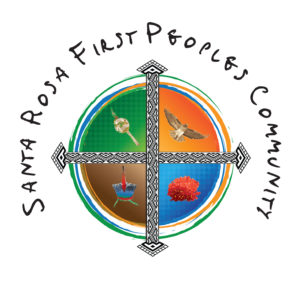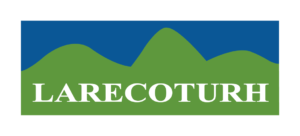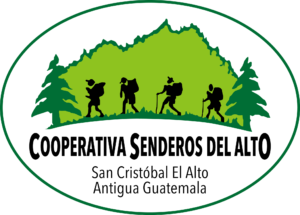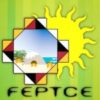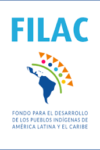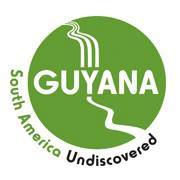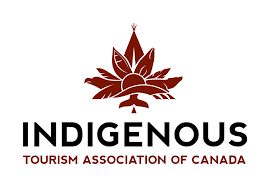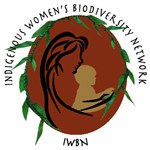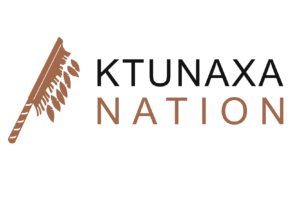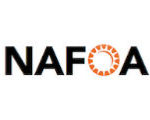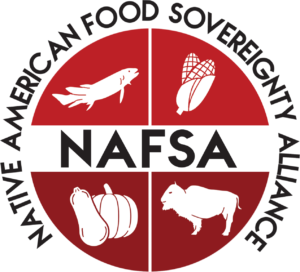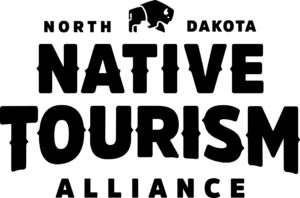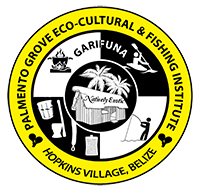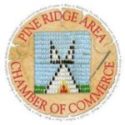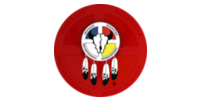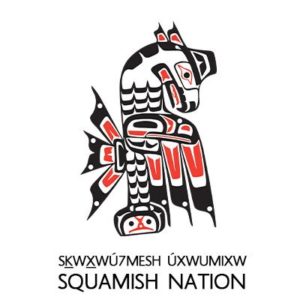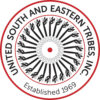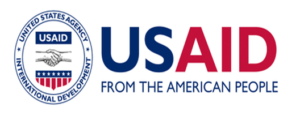The Indigenous Advisory Committee includes tribal leaders from across the Americas tasked with ensuring that Indigenous people are well represented at the forum and that discussions reflect the priories and concerns of Indigenous communities.
American Indian Alaska Native Tourism Association (AIANTA)
Sherry L. Rupert, Chief Executive Officer
Emerson Vallo, President, AIANTA Board of Directors
For nearly two decades, the American Indian Alaska Native Tourism Association (AIANTA) has served as the national center for providing tourism and recreational travel technical assistance, training and capacity building to American Indian nations. AIANTA is a 501(c)(3) national nonprofit association of Native American tribes and tribal businesses and was incorporated in 2002 to advance Indian Country tourism. AIANTA’s mission is to define, introduce, grow and sustain American Indian, Alaska Native and Native Hawaiian tourism that honors traditions and values.
Caribbean Organization of Indigenous Peoples
Ricardo Hernandez, Chief
The Caribbean Organization of Indigenous Peoples (C.O.I.P) was established in 1987. Its country members include Belize, Dominica, Guyana, Puerto Rico, Saint Vincent, Suriname, and Trinidad and Tobago. The Chairmanship of COIP currently rotates to each member country every 3 years with the present Chair residing in Trinidad and Tobago being served by the Santa Rosa Carib Community.
The Santa Rosa First Peoples Community is the Chair of the Caribbean Organization of Indigenous Peoples and uses a common logo.
Community Ka Kuxtal
Alvaro Mena Fuentes
Community Tourism Network of Honduras LARECOTURH
Marcio Rivera, Director
We are an association of communities that promotes the development of sustainable tourism in Honduras through representation, management and advocacy for the comprehensive strengthening of its members.
Cooperativa COSENDER
Inocente Cutzan, President
Mission:
To bring sustainable development to our Village through alternative tourism, within a framework of coexistence with our community and the environment, respecting its culture and its surroundings, thus generating quality employment for young people and adults of this beautiful place.
Federación Plurinacional de Turismo Comunitario del Ecuador (FEPTCE)
Galindo Parra, Vice-President
The Plurinational Federation of Community Tourism of Ecuador, FEPTCE is an institution that brings together actors from Indigenous, Afro, Montubios and Mestizo peoples and nationalities, who depend on their land for their agricultural, artisanal products, and work as well as farmers who have established tourist, educational, and social initiatives to continue living with dignity in their territories. The principles of the FEPTCE are the foundations of the federation and its ethics, which are based on the four creative axes of Ecuadorian Community Tourism: defense of the territory, valuation of Indigenous and rural culture, organizational strengthening, and equitable distribution of resources for the common good. They define the partnership project that our members represent. To be part of the federation, all members commit to respect and disseminate these principles.
Fund for the Development of Indigenous Peoples of Latin America and the Caribbean (FILAC)
Myrna Kay Cunningham, President of the Board of Directors
The Fund for the Development of Indigenous Peoples of Latin America and the Caribbean (FILAC) is an international organization constituted with the equal representation of Indigenous Peoples and governments, in order to support the self-development processes of Indigenous Peoples, communities and organizations in Latin America and the Caribbean, and to recognize the work done in terms of consultation and dialogue between Indigenous organizations and government sectors through national, regional and inter-agency consultative bodies.
Guyana Tourism Authority
Carla James, Director
The Guyana Tourism Authority (GTA), operating under the Ministry of Tourism, Industry and Commerce , is a semi-autonomous governmental organisation responsible for developing and promoting sustainable tourism in Guyana.
Our Mission is to develop and promote sustainable tourism in Guyana through collaboration to maximise local socio-economic and conservation outcomes and improve the travellers’ experience.
Indigenous Tourism Association of Canada (ITAC)
Keith Henry, President & CEO
The purpose of the Indigenous Tourism Association of Canada (ITAC) is to improve the socio-economic situation of Indigenous people within the 10 provinces and 3 territories of Canada. ITAC does that through the provision of the following services to Indigenous tourism operators and communities, or those looking to start a cultural tourism business:
- economic development advisory services
- conferences
- professional development training and workshops
- industry statistics and information
ITAC will develop relationships with other groups and/or regions with similar mandates, uniting the Indigenous tourism industry in Canada. ITAC will work to enable collective support, promotion and marketing of authentic Indigenous cultural tourism businesses in a respectful protocol.
Indigenous Tourism Ontario
Kevin Eshkawkogan, Chief Executive Officer
Indigenous Tourism Ontario (ITO) is the province’s first and only dedicated Indigenous tourism organization that focuses on uniting communities, Indigenous organizations and industry leaders to support the growth of Indigenous tourism in Ontario.
Indigenous Women for Biodiversity of Latin America and the Caribbean (IWBN)
Florina Lòpez M, Co-Chair
The objective of the IWBN is to bring the issues of indigenous women to the forefront of international discussions while emphasizing the vital role they play in biodiversity conservation. The network facilitates a community of practice relating to the themes of this project- Indigenous Women, Traditional Knowledge, Policy, and Biodiversity Conservation. The network has members from all seven (7) regions of the world- Africa, Asia, Artic, North and Latin America, Pacific and Russia.
Ktunaxa Nation
Honorable Sophie Pierre, Chief
The Ktunaxa Nation is an Indigenous society whose traditional territory is within the asserted boundaries of Canada and the United States of America. Ktunaxa (pronounced ‘k-too-nah-ha’) People have occupied the lands adjacent to the Kootenay and Columbia Rivers and the Arrow Lakes of British Columbia, Canada for more than 10,000 years. The Traditional Territory of the Ktunaxa Nation covers approximately 70,000 square km within the Kootenay region of south-eastern B.C., northern Montana and Idaho, and historically included parts of Alberta and Washington. Today the Ktunaxa are a thriving Nation of people who are working to revitalize their language and culture, taking a lead stewardship role across their lands. The Ktunaxa Nation is enthusiastically working towards self-governance as part of their Nation re-building. They continue to maintain cooperative and respectful relationships with neighboring First Nations and other levels of government.
The National Center for American Indian Enterprise Development (NCAIED)
Chris James, President and CEO
The National Center for American Indian Enterprise Development is a 501(c)(3) nonprofit organization. With over 40 years of assisting American Indian Tribes and their enterprises with business and economic development, we have evolved into the largest national Indian-specific business organization in the nation. Our motto is: “We Mean Business For Indian Country” as we are actively engaged in helping Tribal Nations and Native businesspeople realize their business goals and are dedicated to putting the whole of Indian Country to work to better the lives of American Indian people both now… and for generations to come.
National Congress of American Indians (NCAI)
Christian Weaver, Vice President of Development
Founded in 1944, the National Congress of American Indians (NCAI) is the oldest, largest, and most representative American Indian and Alaska Native organization serving the broad interests of tribal governments and communities.
NCAI, a nonprofit organization, advocates for a bright future for generations to come by taking the lead to gain consensus on a constructive and promising vision for Indian Country. The organization’s policy issues and initiatives are driven by the consensus of our diverse membership, which consists of American Indian and Alaska Native tribal governments, tribal citizens, individuals, and Native and non-Native organizations.
Native American Finance Officers Association (NAFOA)
VaRene Martin, Director of Tribal and Corporate Relations and 1st Vice President
NAFOA is a national non-profit organization providing leadership for the advancement of independent and culturally-vibrant American Indian and Alaska Native communities by promoting excellence in financial management, advocating sound economic and fiscal policy, developing innovative education initiatives, and providing essential information, resources, and support to meet the challenges of economic growth and change.
Native American Food Sovereignty Alliance (NAFSA)
Diane Wilson, Executive Director
“Advocating for and supporting all levels of food security and food sovereignty in local, tribal, regional, national and international arenas”
The Native American Food Sovereignty Alliance (NAFSA) is dedicated to restoring the Indigenous food systems that support Indigenous self-determination, wellness, cultures, values, communities, economies, languages, and families, and rebuild relationships with the land, water, plants and animals that sustain us. NAFSA brings people, communities (rural, remote and urban), organizations and Tribal governments together to share, promote and support best practices and policies that enhance dynamic Native food systems that promote holistic wellness, sustainable economic development, education, reestablished trade routes, stewardship of land and water resources, peer-to-peer mentoring, and multi-generational empowerment. NAFSA works to put the farmers, wildcrafters, fishers, hunters, ranchers and eaters at the center of decision-making on policies, strategies and natural resource management.
We commit to take collective and individual action to address food sovereignty, and to build the necessary understanding and awareness among our Peoples, Nations, leaders and policymakers, as well as our youth and coming generations, to make it a continuing reality.
NativesOutdoors
Len Necefer, CEO
NativesOutdoors is an outdoor products company whose products serve to support Indigenous people.
NativesOutdoors began as a social media project in March 2017 by Len Necefer (Diné) to highlight the stories and photos of Native people in outdoor recreation to address the lack of representation of indigenous people in the outdoor industry.
The organization has expanded to providing advisory and consulting services to the outdoor industry on topics within the intersection of Tribes, public lands, and outdoor recreation.
NativesOutdoors is working directly with tribal governments, community organizations, and individuals on increasing access to outdoor recreation and connecting resources and opportunities within the outdoor industry.
North Dakota Native Tourism Alliance (NDNTA)
Selina LaFontaine, Secretary of the Board of Directors
The mission of NDNTA is to protect, promote, preserve, and educate the world about the culture, history and environment of our sovereign nations. The NDNTA will promote and educate through sustainable tourism while developing economic opportunities for our people and nations.
Palmento Grove Garifuna
Eco-Cultural & Fishing Institute
For more than 10 years, Palmento Grove Garifuna Eco-Cultural and Fishing Institute has served as a sustainable cultural tourism business and a cultural preservation center. We believe that through innovation, the use of technology and traditional knowledge we can maintain a successful cultural tourism product that empowers all stakeholders and serves as a catalyst for cultural pride and preservation.
Located on the north side of Hopkins Village in southeastern Belize, Palmento Grove Garifuna Eco-Cultural and Fishing Institute consists of both a private island retreat and an inland Tour & Travel Services Business designed to reflect the authenticity of a traditional Garifuna village. Owned and operated by local Garifuna people, an Afro-Caribbean culture indigenous to Belize, Palmento Grove is one of the best places to experience an authentic Garifuna Cultural Immersion in Belize.
Palmento Grove through its Non-Profit Organization – Belize Afro Indigenous Eco Cultural Institute is also dedicated to empowering people through the promotion and preservation of traditional cultural knowledge, history, and way of life.
Pine Ridge Area Chamber of Commerce
Ivan Sorbel, Executive Director
The Chamber is an association of business people-working together to make Pine Ridge Area a better place in which to live, work, and raise a family.
A voluntary non-profit corporation whose purpose is to create, sustain and enhance Indian owned businesses, therefore improving the quality of life on the Pine Ridge Indian Reservation. Applying the Lakota values of Honesty, Wisdom, Respect, Courage, Fortitude, Responsibility, and Generosity to the economic setting.
Sierra Norte
Angelina Martinez Perez
Sinte Gleska University
Lionel Bordeaux
The Sinte Gleska University mission statement addresses instruction, public and tribal service, economic development, and cultural fulfillment through nation building. Sinte Gleska University strives to build a healthy tribal nation and sustain cultural identity by developing critical-minded life long learners who promote dialogue and analysis, value diversity and provide leadership.
Squamish Nation
Carla George, Councilwoman
The Squamish Nation is comprised of descendants of the Coast Salish Aboriginal peoples who lived in the present day Greater Vancouver area; Gibson’s landing and Squamish River watershed. The Squamish Nation have occupied and governed their territory since beyond recorded history. Total area of Squamish Nation Traditional Territory is 6,921 sq. km. (~692,100 hectares).
The Nation consists of 23 villages encompassing 21.2 sq. Km. (2,120 hectares).The percentage of Squamish Nation Traditional Territory allotted to the people is 0.4230%. These parcels of land are scattered from North Vancouver, Gibson’s Landing to the area north of Howe Sound.
United South and Eastern Tribes (USET)
Rebecca Naragon, Economic Development Director
USET is an inter-tribal organization with 27 federally-recognized Tribal Nation members. While defined as a regional organization, USET has developed into a nationally prominent and respected organization due to its broad policy platform and influence on the most important and critical issues facing all of Indian Country. Supporting all of its issue-specific advocacy is a foundation built upon the goals of promoting and protecting the inherent sovereignty rights of all Tribal Nations, pursuing opportunities that enhance Tribal Nation rebuilding, and working to ensure that the United States upholds its sacred trust responsibilities to Indian Country.
USET represents and promotes the interests of its member Tribal Nations through conferences, associations, work groups, partnerships, etc. Additionally, it serves as a forum for the exchange of ideas, works on behalf of its membership to create an improved quality of life for American Indians through increased Health, Education, Social Services, Housing, Economic Development, Transportation, and Justice opportunities, and works to promote Indian leadership to ensure Indian Country’s continued growth, development, and prosperity as Tribal Nations.
USAID
Luis Felipe Duchicela, Senior Advisor for Indigenous Peoples’ Issues for the Center of Excellence on Democracy, Human Rights, and Governance at USAID’s Bureau for Democracy, Conflict, and Humanitarian Assistance
USAID is the world’s premier international development agency and a catalytic actor driving development results. USAID works to help lift lives, build communities, and advance democracy. USAID’s work advances U.S. national security and economic prosperity, demonstrates American generosity; and promotes a path to recipient self-reliance and resilience.
World Indigenous Tourism Alliance (WINTA)
Ben Sherman, Chairman of the WINTA Leadership Council
The World Indigenous Tourism Alliance (WINTA) was incorporated on March 27, 2012, in the Larrakia Nation in the Northern Territories of Australia. The organization was created from the global, collective aspirations of Indigenous interests in tourism and is an Indigenous initiative that is based on key human Indigenous rights including the right to self-determination, the right to self-governance, and the right to maintain and develop their own distinct institutions and to maintain and develop cross-border contacts critical to maintaining their communities and cultures.
Today, WINTA is established to facilitate future international partnerships on behalf of six Indigenous tourism associations. As a nonprofit, the organization is guided by a Leadership Council and operated by a dedicated team of volunteers.

